2 min read
Gospel-Centered from the Start
“Let us hold unswervingly to the hope we profess, for He Who promised is faithful…Jesus Christ is the same yesterday, today, and forever.” (Hebrews...
Teria Kelley is Resident Services Coordinator at the UGM Center for Women and Children in Coeur d'Alene. But in her own words, her job title is, "House Mom with 70 Kids." We asked her some questions about her life and her job, and her voice exudes tenderness as she talks about working with women and children dealing with homelessness, addiction and abuse.
You’ve been at the Center for Women and Children from the very beginning six years ago. Tell me what brought you in to UGM's orbit and how you got connected.
I was the director of a shelter for women and children in Wenatchee. I went to a conference where Debi Pauletto was presenting, and I just remember hearing about grace-based culture and knowing that those were the things we needed back in Wenatchee at the shelter I was running. I incorporated some of those things I learned there.
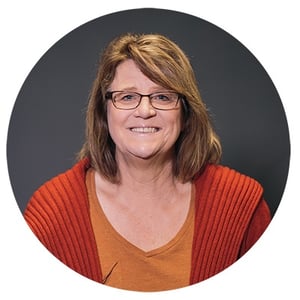 I had four children living in the Spokane area at that time. I just kept feeling really led by the Lord that Coeur d'Alene was going to be the place that we would be someday.
I had four children living in the Spokane area at that time. I just kept feeling really led by the Lord that Coeur d'Alene was going to be the place that we would be someday.
I saw a job posting for pre-program coordinator at the Center, and the responsibilities were what I'd been doing for seven years in Wenatchee at the Haven of Hope. I thought, “Wow, this really is a sign!” But my husband needed to be on board with that because he's a schoolteacher in East Wenatchee. He said yes, go for it. I applied, I think I interviewed three or four days later, and then a few days later I knew I was being hired for that position. Very quickly, but I just knew it was God-ordained.
My husband actually still works in East Wenatchee. He loves his position and we've just made that work for us. We live in Post Falls now and we own a home there. Two of my children are still living in Spokane. I have five children and nine grandchildren. One of them is married and in Virginia with three of my grandkids. Then my son lives in the north end of Spokane and my daughter is in Spokane Valley, one daughter down in Fort Collins, Colorado and then another son that is in Kirkland, Washington.
What was it like to launch the Center?
It was one thing to do the training for the things that I had already done for seven years in Wenatchee. It's another thing to learn the culture and the Genesis process and everything that we were trained in in those first few months. 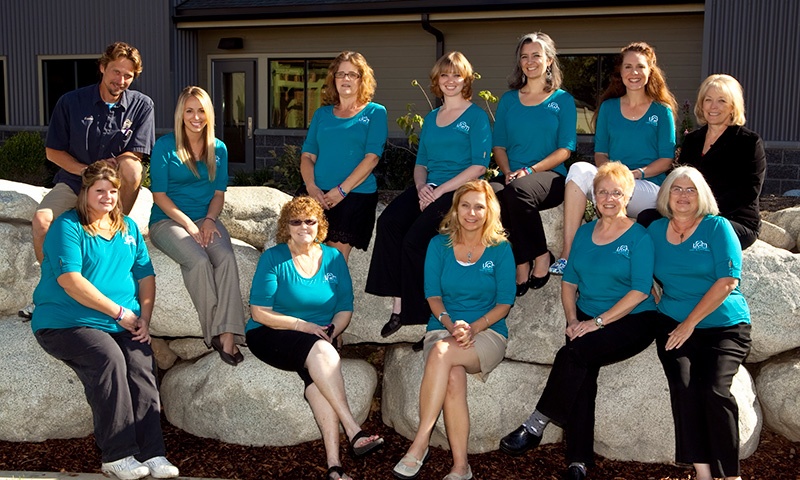 We always kid about “I’m in Phase 8 or Phase 9,” because I’ve been here that long and I’m still learning things. Being part of this ministry and living here – I might as well be living here – you can’t be here and not be changed. You can’t do that.
We always kid about “I’m in Phase 8 or Phase 9,” because I’ve been here that long and I’m still learning things. Being part of this ministry and living here – I might as well be living here – you can’t be here and not be changed. You can’t do that.
I love the residents. When I first came in, I never felt that I was ever above them because I’ve had my own brokenness and I’ve had wounds that I’ve had to walk through. I never turned to substances, but I turned to other things – relationship addictions and some other things – so I always felt like there was a level playing field for me. I never felt better than they are. After working here you just have a better understanding of how much God loves us.
I don’t want to see anybody leave here without knowing that God loves them, that he truly loves them, that he’s for them. The biggest piece that I’ve gotten from here and I always tell the girls: understanding your identity in Christ. For me, it was about if I did this and did that, then I would be holy enough. That just might be the way many people from my generation think, or the church I was brought up in might’ve tended to give me that feeling. And this helped me to understand my identity in Christ.
And now I even work with Celebrate Recovery at my own church at Valley Real Life, part of that ministry. I get to do meals and kind of fun things, so it’s not like the recovery pieces that I do here at work. It’s nice to be able to give back and actually have some knowledge about recovery now, real recovery. Not sobriety only but real recovery. I know someday I may move on, but I can’t see me ever not doing something from a ministry with recovery.
What are the main pieces of your work here?
I’m the Resident Service Coordinator, so anything that affects the residents, I’m involved with. A lot of the times I am the day RA (resident assistant) from 7:00 a.m. to 3:00 p.m. When I have volunteers working, then I can come in a little bit later in the day.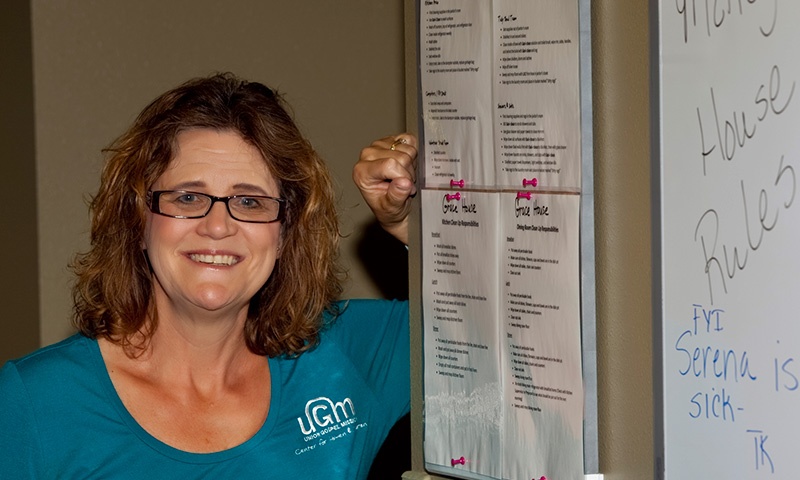 I am on the front lines if they’re sick or if something’s going on in the house. I oversee the RA team and make sure that we have 24/7 coverage of this home. So I deal with that group but I also deal with the group of residents. In the very beginning they called me a Pre-Program Coordinator, just to deal with the residents that were first coming in. Now we call them First Steps; we split that responsibility, and now Kirste the counselor takes care of residents who are applying and doing our orientation, and she’s the one who helps schedule their intake.
I am on the front lines if they’re sick or if something’s going on in the house. I oversee the RA team and make sure that we have 24/7 coverage of this home. So I deal with that group but I also deal with the group of residents. In the very beginning they called me a Pre-Program Coordinator, just to deal with the residents that were first coming in. Now we call them First Steps; we split that responsibility, and now Kirste the counselor takes care of residents who are applying and doing our orientation, and she’s the one who helps schedule their intake.
We monitor what medications they’re on, and so I’m involved in that. Community meetings, I try to make it to those as much as I can. If I do not have volunteer staff who can help me, I’m the one that’s going upstairs and checking all the rooms to see if they meet our standards. I’m checking to see if chores get done or were done right, or following up with residents that don’t do their chores. Initiating self-evaluations or whatever else is next.
I think because I’ve been here for so long, I can kind of fill in where they need me. I know snippets of every department, so I can help out in that way.
I’m in a hurry a lot of the time, so I have to be aware of my approach because I’m a doer and a mover and a shaper. When people surround me and everybody is asking me a question at once, I feel like a sprinkler that’s just kind of trying to answer all the questions as quickly as I can to give them all the answers that they need.
But it’s all about relationship, right? Even if it’s just about keeping a room tidy, you connect on a heart level.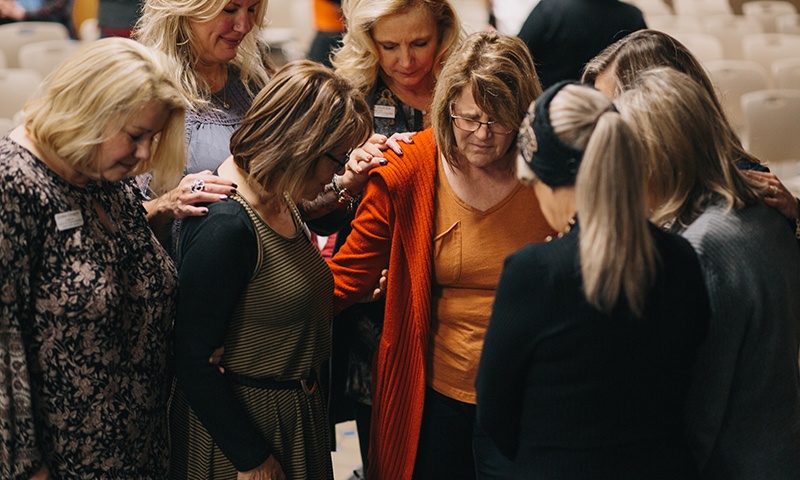 That’s how we do things. Lots of conversations, lots and lots of conversations. Back in the olden days at the other shelter, if you didn’t keep up your room to our standards or whatever, you could have been asked to leave. And that’s what I loved about this place is that we don’t just say you can’t be here because you can’t do some one thing: We’re going to help you, we’re going to teach you.
That’s how we do things. Lots of conversations, lots and lots of conversations. Back in the olden days at the other shelter, if you didn’t keep up your room to our standards or whatever, you could have been asked to leave. And that’s what I loved about this place is that we don’t just say you can’t be here because you can’t do some one thing: We’re going to help you, we’re going to teach you.
One of the things I still love and get excited about is when a new person comes in the doors. Just to be able to welcome them and say, welcome home. God has a plan. He has you here for a reason, for such a time as this. It’s still exciting. It never ever gets old to see a fresh new face walk in the door. 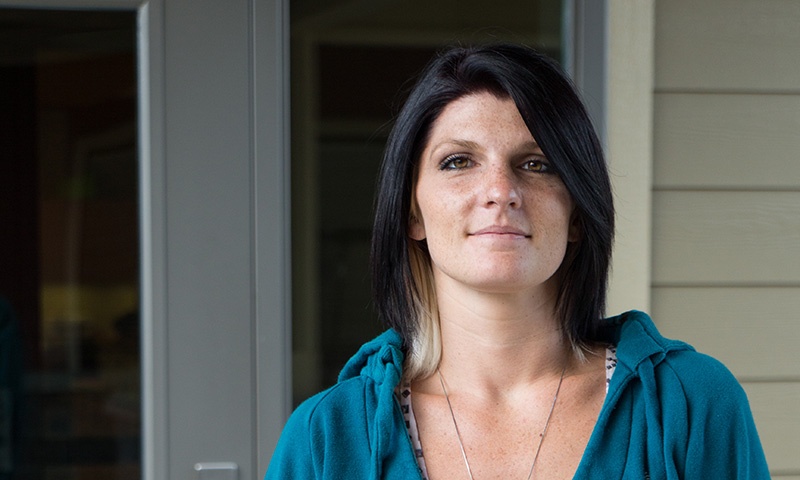
How do they respond to that? Are they touched, or are they kind of overwhelmed?
The majority of people walking through the doors are walking through the unknown. Even though they’ve had a program orientation and they’ve been through an interview, they’re still walking through unknown doors. And as sweet and wonderful as the intake team is, it still can be a very scary thing.
So we welcome them, we pray with them. We do the usual intake, going through belongings and everything else. There’s a checklist of about 25 things that we do to get them in here and get them going – drug tests, lice checks, standard things to keep the house secure. But just helping them to emotionally regulate and just see and hear that we understand, it’s okay if you’re crying right now. We want to welcome you, we want you here. God’s for you, we’re for you.
Some people volunteer for the intake team because they love being on those front lines and welcoming people their first time in. We have tried many different things in the last six years but I feel like we finally have been able to get a good routine of how to bring the right number of people in and prepare them through the First Steps process so that they’re ready for that first day of Phase 1.
And we’ve worked even more with work therapy, which is a combination of chores and their mealtime responsibilities in the kitchen. Even in First Steps they do three hours a day, so they’re contributing in the warehouse or the facilities or the kitchen. So they get to know those department heads, and they also learn more about work-related issues.
Tell us about your role bringing women in from the legal system.
I still go to Kootenai County Jail and I interview potential applicants from that place. I’m also the liaison for our residents here who are on probation as a misdemeanor or felony. I write the acceptance letters and send that to the judges and public defenders and everybody, so I work well with them and with the chaplain at the jail.
I love legal things anyway. I think I should have tried to be an FBI agent or a probation officer or something. The probation officers I have worked with are just so direct with the girls but yet in a very gracious way. I know that’s the way I would be.
One of my spiritual gifts is discernment. That kicks into gear when I’m deciding who’s going to come in from the jail, because there are lots of women over at Kootenai County Jail. We’ve had women from other jails apply here, too. I want to bring in somebody who I believe really wants recovery and wants the life change, as opposed to just getting out of jail.
There must be some things that are discouraging about this job. How do you deal with that?
Because of who I am and the way God made me, I think probably one of the hardest things for me to constantly do is repeat the same thing over and over and over. I’m saying the same things over and over to different faces. Not just residents, but staff as well. So, it’s that constant training mode and constant teaching mode. So for me sometimes that’s kind of frustrating.
It hurts me deeply when residents relapse, but I have found that one of my strengths is in meeting with a person when they have to leave. I want them to know I love them the same at that moment as I did yesterday, before I knew that they’d used. But just loving them and not making them feel like they’ve done something unforgivable, because they haven’t. 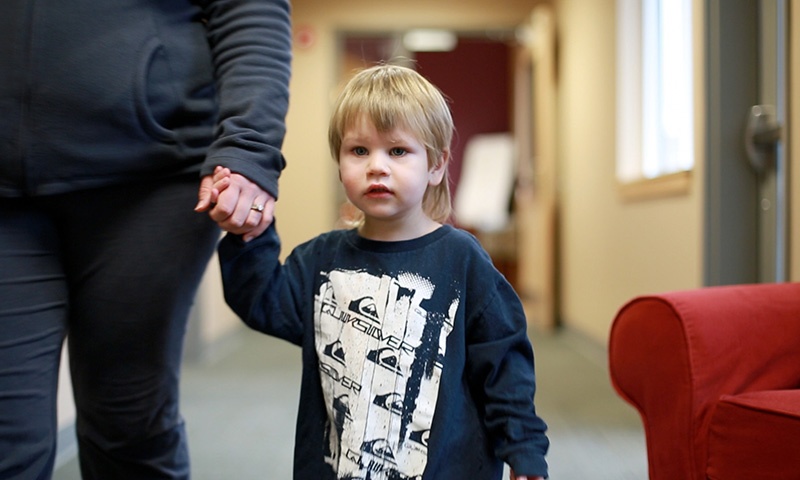 This has taken a while, it’s not the way my first “exit” was. That time, when I found out about it, I really took it personal. I remember calling her on it, that she had been misusing her pain medications. When I questioned her on it, she literally jumped up and ran out of the building and down the street. So that was one of my first times.
This has taken a while, it’s not the way my first “exit” was. That time, when I found out about it, I really took it personal. I remember calling her on it, that she had been misusing her pain medications. When I questioned her on it, she literally jumped up and ran out of the building and down the street. So that was one of my first times.
And now there’s such a peace and a love that shines through me that I know comes from the Lord. They hear, “This is what I have to do right now, and I have to follow the same procedures as you and this is what you’re going to need to do.” Having that kind of tenderness, 99% of the time they go ahead and confess to anything else they’ve done. It’s just that tenderness and me saying, “I understand and I’m for you, not against you.”
I’m always about being proactive with anything that we do here, the way we set up things. For instance, if we’re telling you not to go into somebody else’s room, it’s because we don’t want you to be accused of stealing something. If you don’t go into the room, then you’re not going to set yourself up to be accused of anything. I make clear the reasons why we do things the way we do.
What are those great moments that you live for here?
The booster shots for me are definitely phase-up celebrations, because they’re all about the residents and what they’ve accomplished. Everything that the counselors have to say about the residents, and the residents themselves, what they have to say, what they’ve learned.
I love just the simple “aha moments” when somebody realizes their identity in Christ. I love when somebody just totally “gets it.” When they’re doing a self-eval and they totally go to the heart of the matter.
One of the big things I love is to see them get off probation after they’ve been here, and they’re so great about just staying in contact with the probation officers and the probation officers working with them. And just seeing them be set free of things.
You’ve alluded to some of the brokenness in your past. Can you share your testimony?
I went to Lost Lake Bible Camp and was saved the summer I was 11 years old. Then I was kind of side-tracked for a few years. Kind of an angry eighth-grader when my family moved from a little town we lived in and they took me away from all my friends and we moved to the “big town” of Colville.
I was pretty resentful and there were some other family issues that happened at that time. I would go to church and I would go to all of the gatherings for youth groups and things like that. But it really wasn’t a heart thing, it was just doing what Mom and Dad wanted me to do. I ended up meeting a young man and was pregnant at 16. We got married and had two more children. We went through a really, really rocky marriage for almost 18 years.
But in that time, I guess it was 1975, I was watching a Billy Graham crusade, and I was sitting there with my three little babies. Watching that and realizing that I had messed up my life so much, having marital problems, I just realized I really messed up. I was ready to tell the Lord, “No matter what, whatever, I’m done. I’m done doing this my way.” I even said, “Lord, if you want to take the kids from me too, whatever. I’m done.” That evening the truth about the marriage was exposed, and it was exposed so radically soon after my prayer, I knew it was from the Lord. Then there was a base of truth for the Lord to begin my walk with him.
Short version of the story: it ended up in divorce. So through all of those things and all of that brokenness, I still struggle with certain things. I struggle with anxiety. I have victory over it at times and sometimes I struggle with it. But I’m so thankful that I never turned to any substances. It was bad enough with relationship addiction.
But the Lord just kept teaching me and drawing me closer through all that. And there hasn’t been one single thing that he has not used here in the last 20 years. God has just used all of that pain from back in the ’70s.
A while later Dave and I got married. He had a son, so I have kids ages 47 all the way down to 26: his, mine and ours. They really have taught me more about how to do this here.
I’m really “house mom.” About four years ago, I started realizing the residents really do love me, even though I’m saying “Get your room cleaned up” and all those things that I have to tell them. Sometimes I wake up at 3:00 or 4:00 in the morning, and I will see their face. They are in my thoughts and in my dreams just as much as my own family. And I think that’s okay. It’s just that I’m a mother with 70 kids. I have a true love for the residents.
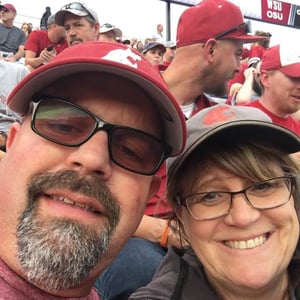
What are some of your favorite things?
Gonzaga basketball, Cougar football: we’re season ticket holders. I love to read, usually historical fiction and other things, but I love to read.
Anything else you’d like to share?
I have been deeply hurt here myself. But I’ve also deeply hurt others. But to be able to walk through that conflict now with the tools that we’re given here to do that, and to come out on the other side of it a better person is one of the most valuable things we’re given in this ministry. Some conflicts, you think it might kill you to have to walk through them. But it’s worth it, to walk through it.
My mentors in the beginning here were Jillian and JoAnn, and Traci, who helped me just to understand my identity in Christ and the other things that are really key to recovery. And JoAnn’s an amazing leader, always looking out for our personal life as well as what we do here. It’s important to always make sure your cup is full, because you can’t come in here and pour into anybody else with even a cup half empty.
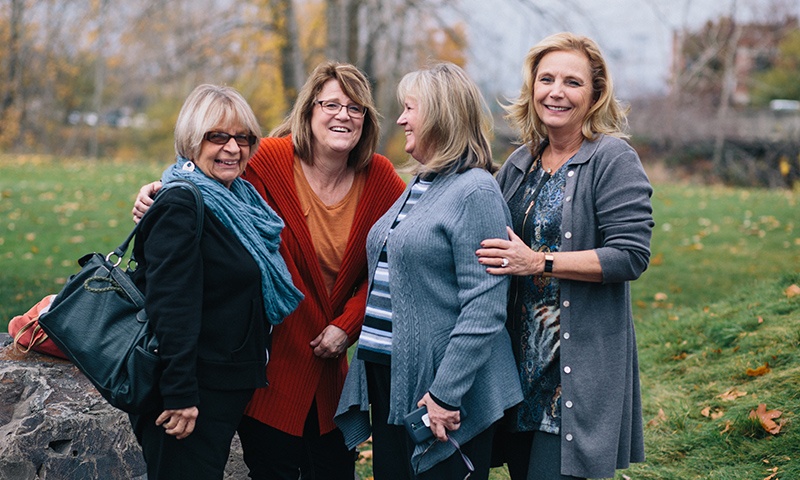 We have a great staff here. We have a lot of terrific male staff here: Diego and Dave and Matt and Zach, and we have other volunteer men, godly men that these women need to have in their life and to see that they’re safe. The kids, too, especially – if they have that time to hang out with those guys it’s just a tremendous blessing for them.
We have a great staff here. We have a lot of terrific male staff here: Diego and Dave and Matt and Zach, and we have other volunteer men, godly men that these women need to have in their life and to see that they’re safe. The kids, too, especially – if they have that time to hang out with those guys it’s just a tremendous blessing for them.
God called Teria to UGM before her job even existed: Maybe He's calling you to serve the homeless and broken here too! Click here to see our open employment opportunities.

2 min read
“Let us hold unswervingly to the hope we profess, for He Who promised is faithful…Jesus Christ is the same yesterday, today, and forever.” (Hebrews...

9 min read
To celebrate 75 years of serving the Inland Northwest, we are spending the year remembering our history and the faithfulness that built us and...

2 min read
In 2026, Union Gospel Mission Inland Northwest is approaching our 75th Anniversary! This is a milestone that invites gratitude and reflection, and...
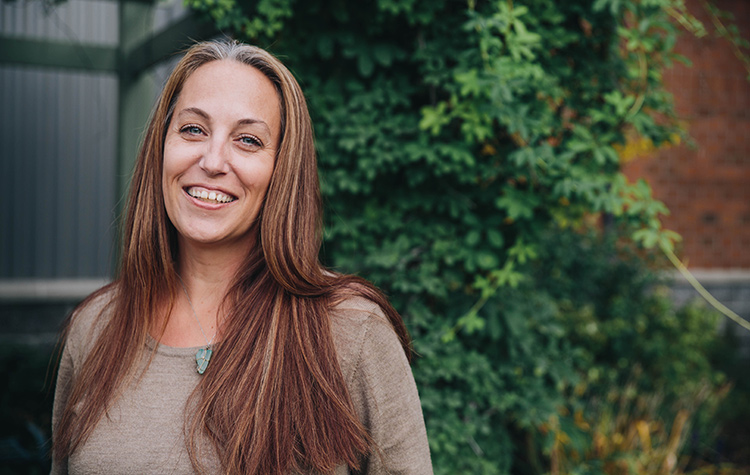
Kari had been walking for four days. Literally. She wasn’t going anywhere. She didn’t need the exercise. She was walking because her life had come...
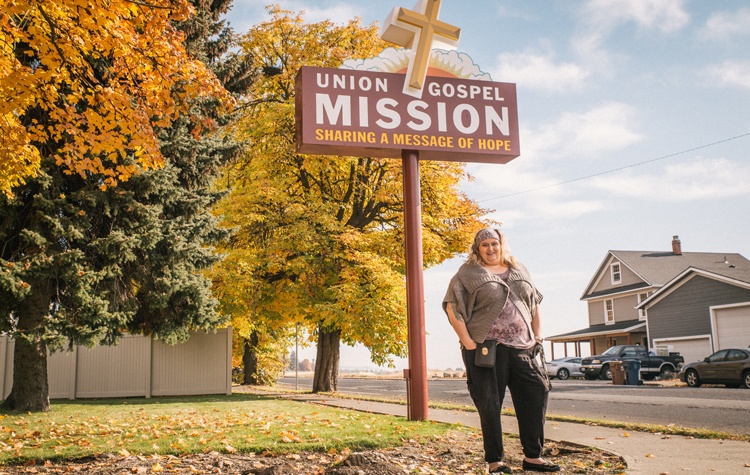
Kimmi (Halbrook) Lane arrived at the UGM Crisis Shelter nine and a half years ago as a guest. Little did she know it was the beginning of a journey...
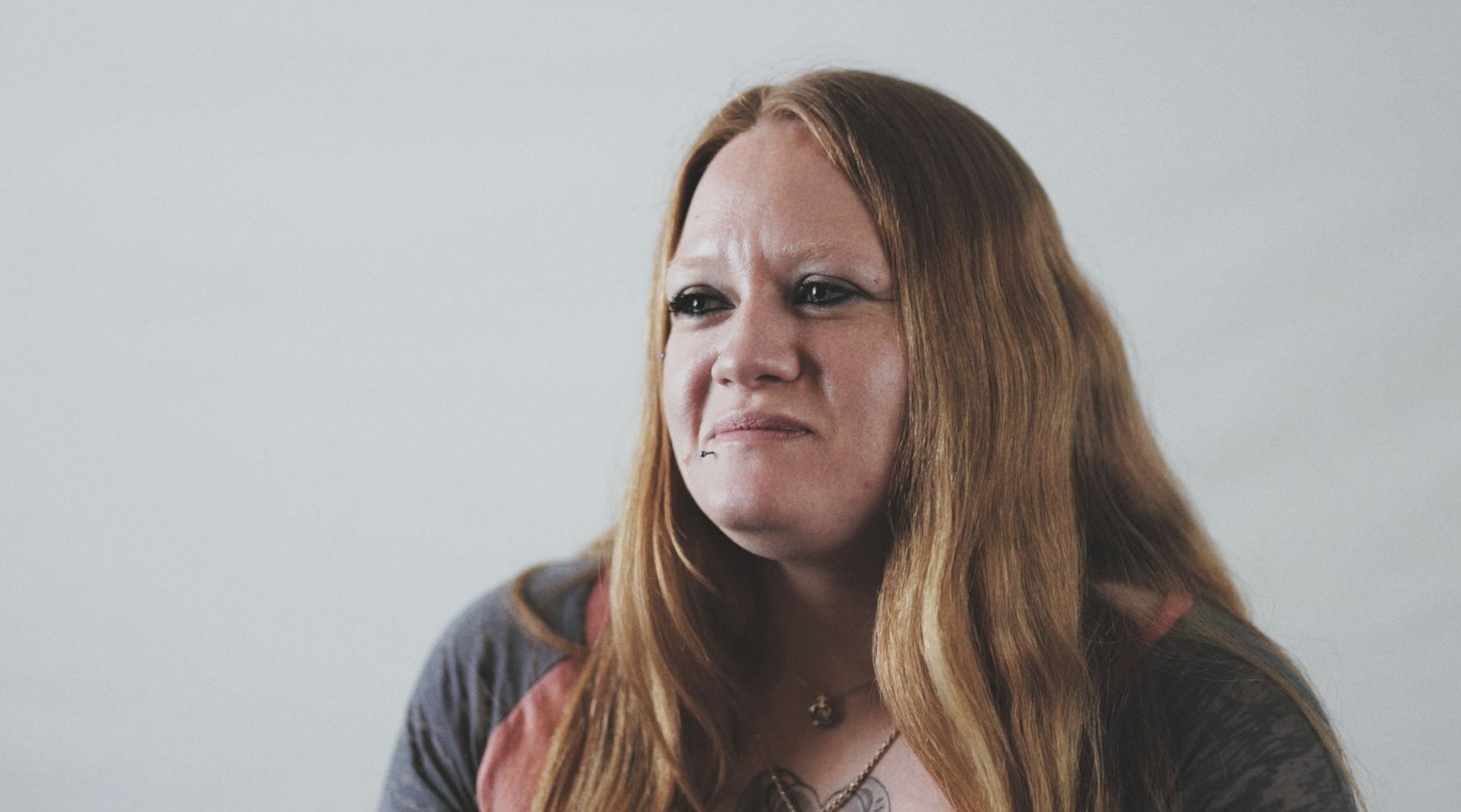
Shanena (pronounced Shane-na) completed UGM Women's LIFE Recovery at the Center for Women and Children in Spring 2022 and recently reached out to...